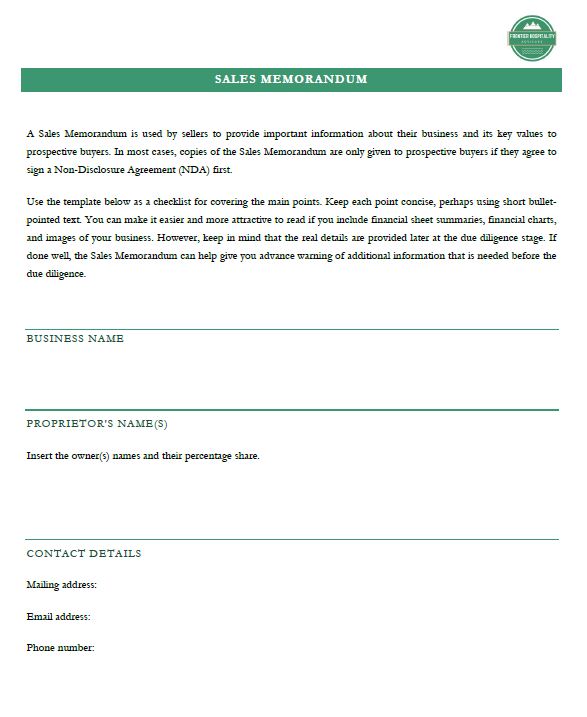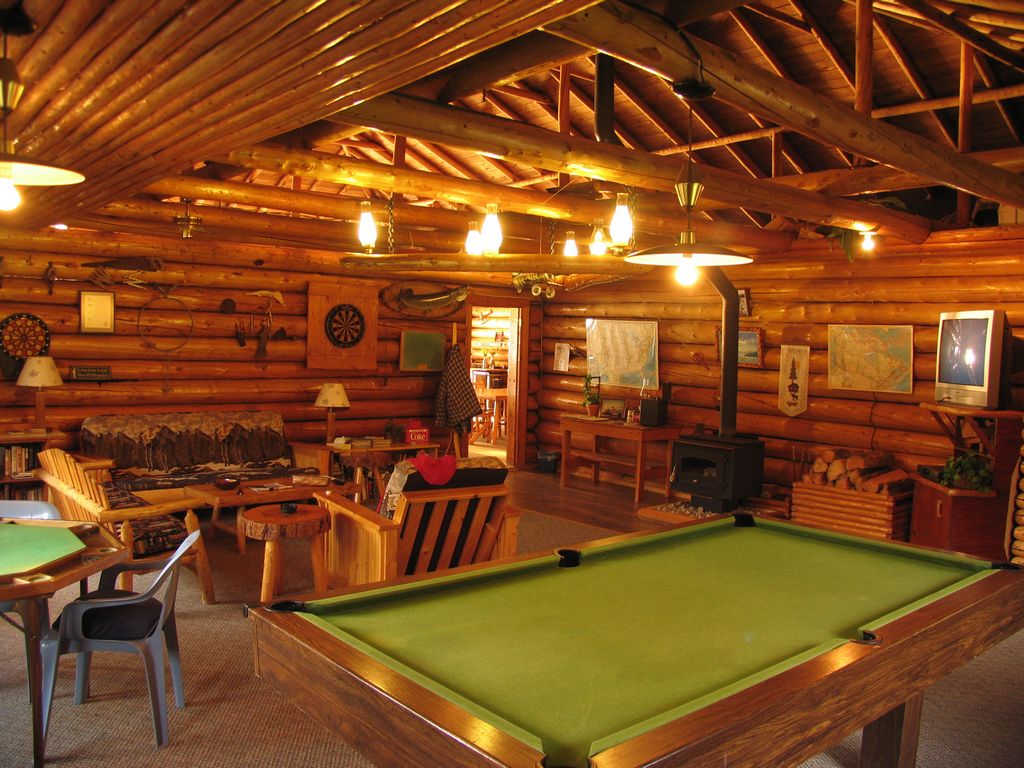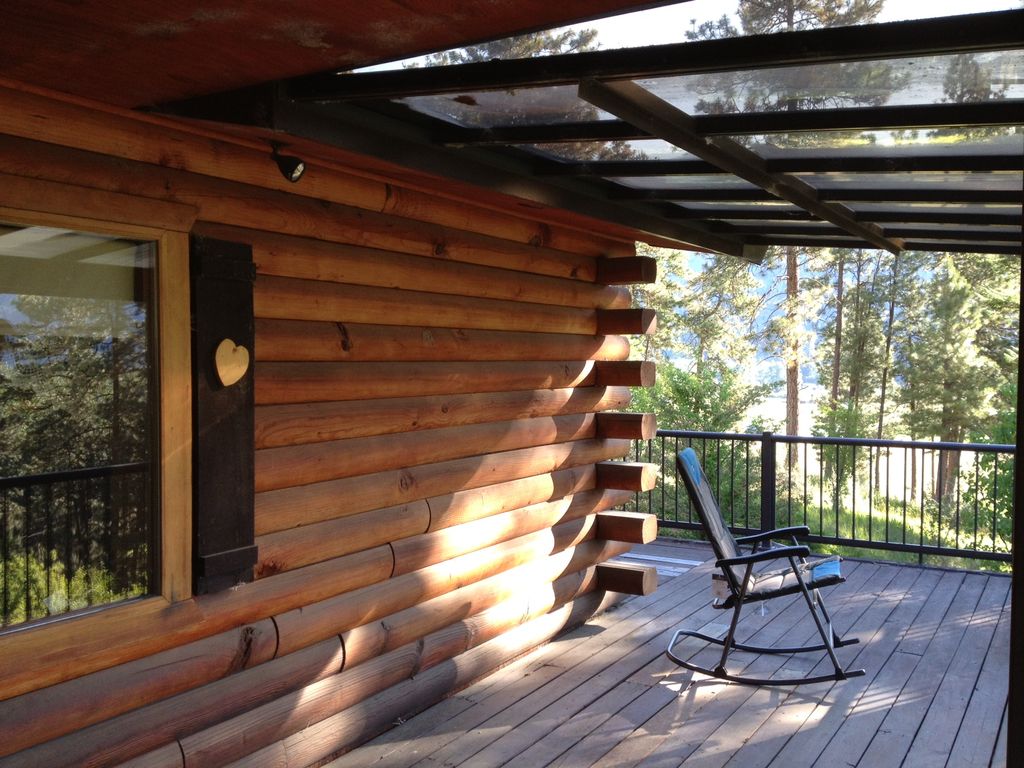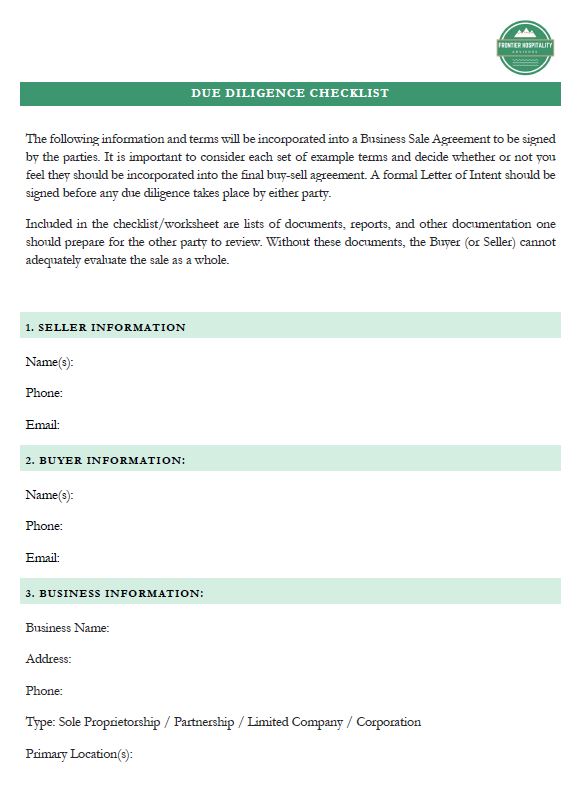10 Top Tips When Negotiating Your Fishing & Hunting Lodge, Marina or Resort Business Sale
You've Found the Perfect Buyer, Now what?
If you’ve run your lodge, camp or resort for a number of years, you’ll have had plenty of negotiation practice with suppliers. However, this is likely the first time that you’ve sold a business. To help you sort out the general flow of the process, here are 10 items that you’ll need to deal with during the negotiation process and will want to plan for in advance.
1. Have Professionals in Place:
Fishing & Hunting Lodge, Camp & Resort business sales are complicated transactions.
Before you even enter into negotiations you should meet with a good CPA to look over the financials and the tax implications of the sale. The accountant can advise you on how to structure the sale for maximum benefit.
Equally important is having an experienced attorney in place to make sure the terms of the deal are what you want. The lawyer will help you during negotiations by receiving offers, preparing counter offers and completing the final sale documents.
2. Be Clear About your Ideal Deal Structure:
As we mentioned above, you’ll want to meet with a CPA to discuss the tax implications of the various ways of structuring the sale.
Generally, there are two ways a lodge, camp or resort business is sold: through a share sale or an asset sale. The tax consequences and mechanics vary for each type of transaction.
A share sale is fairly straightforward; the buyer and seller agree on a price and exchange the shares for cash. Share sales are typically the best structure for the seller.
If shares in a company are purchased, all its assets, liabilities and obligations are acquired (even those a buyer may not know about). With an asset sale, only the assets and liabilities which the buyer agrees to acquire and assume, which will be identified in the sale agreement, are transferred.
It is quite common with fishing & hunting lodges, camps and resorts for the sale to be structured with the seller carrying a note from the buyer for repayment over time. This is because lodges, camps and resorts are difficult assets to obtain traditional financing for. If an owner isn’t willing to carry a note they could potentially be limiting themselves to cash buyers (especially far north properties on leased land).
3. Understand Your Lodge, Camp or Resort's Market Value:
The internet enables price comparison to be done very easily but knowing the underlying business performance will remain a mystery.
Just because your lodge, camp or resort has a similar size and quality of buildings doesn’t mean the revenue generation is anywhere near the same.
It’s wise to have a professional appraiser prepare a commercial appraisal report on your operation.
This will help you with determining an asking price and it will also give you confidence going into negotiations that you have a strong supportive analysis chalked full of quality market data.
4. Create a Data Room for Supporting Data:
You’re going to want to have data on your side during negotiations.
It’s a good idea to create a “data room” that you can share with interested buyers. This could be setup on Dropbox. Think of it as an electronic file folder with everything an interested buyer would want to know.
In your “data room” you may want to include the following:
- Commercial Appraisal report
- Sample marketing materials (brochures, advertisements, etc)
- Land leases
- Property title(s)
- Operating agreements
- Licenses & Consents
- Recent Photos of the property
- Site survey
- Contracts
- Chattels list (boats, motors, etc)
With dropbox you can choose to allow access to single documents or the entire file folder.
5. Have a Walk-Away Number:
It’s important that you enter into negotiations with a reasonable range that the sale price could fall within.
An appraisal report will attempt to “nail down” the value for your lodge, camp or resort, but the reality is that there is a range that it could fall within. You should know what’s the highest and lowest price the asset could reasonably sell for.
Once you understand the range that your business’ value falls within, you need to establish a “walk away number”.
The “walk away” number is your final threshold for consummating the deal. Knowing your walk-away number will keep you from wasting time. It’s best to not only develop a walk away number but also write down the reasons why in order to help you stay disciplined.
6. Research the Interested Buyer:
Complete some online research about the buyer. Knowing a bit about them will help you guage how serious they are.
7. Discuss Transition of the Business:
The seeds of a smooth transition are planted before the transaction. The process starts with negotiating a clear, detailed sale agreement and finding the right buyer.
Lodges, camps and resorts require extra sensitivity in the transition phase that is not common with other business sales.
The guest’s of these business’ often become quite attached to the owner. Planning to stay working with the lodge for a period of time will help the buyer’s confidence to pursue the acquisition.
The more closely you work with the buyer to plan the transition, the fewer problems there will likely be.
8. Have a Letter of Intent Signed:
When selling a lodge, camp or resort, a letter of intent (LOI) is a vital document because, when it is signed, it spells out the preliminary agreement between a buyer and a seller.
A letter of intent is a non-binding document that outlines the key business terms the parties have agreed to, which will later become the basis for and part of the Definitive Business Sale Agreement.
9. Co-Operate on Due Diligence:
Anyone who has bought or sold a lodge, camp or resort knows that one of the most important parts of the transaction comes after the offer has been accepted.
Due diligence refers to the examination of business data to verify the financial and operational standpoint of an enterprise.
Here is a due diligence checklist that will help you know what aspects the buyer is going to want to analyze further. For the process to be successful, co-operation between the buyer and seller is essential.
Effective due diligence means the seller is able to properly exit the business ownership and proceed to the sale. In contrast, unsatisfactory due diligence could lead to the deposit being refunded and a new buyer for the business being sought.
This part of the process is where your lawyer and accountant will really come in handy.
10. Anticipate Problems:
Selling a Lodge, Camp or Resort is rarely easy. Especially in a poor economy, it can be incredibly hard to get a fair price.
This can be frustrating for business owners, and, as a result, the process of trying to sell their business can become an excruciating one.
However, a lot of this frustration can be reduced if you recognize some common mistakes that owners make while selling their business.
Some common problem areas to look at include:
- Excessive or questionable tax deductions, including running too many discretionary, personal expenses through the company — even if the deductions are legitimate, they lower the earnings of the business and require explanation, so consider scaling back on them in anticipation of a sale.
- Pending or threatening litigation — you may not be able to resolve everything, although take steps to resolve all the matters that you can feasibly resolve.
- The proper formation of your company (e.g., incorporation) and its good standing in the province or territory where it was formed.
- The company has paid all taxes due.
- The financial statements and books and records you provided to the buyer are accurate.
This article has been prepared by Frontier Hospitality Advisor for general information only. Frontier Hospitality Advisor makes no guarantees, representations or warranties of any kind, expressed or implied, regarding the information including, but not limited to, warranties of content, accuracy and reliability. Any interested party should undertake their own inquiries as to the accuracy of the information. Frontier Hospitality Advisor excludes unequivocally all inferred or implied terms, conditions and warranties arising out of this article and excludes all liability for loss and damages arising there from.



